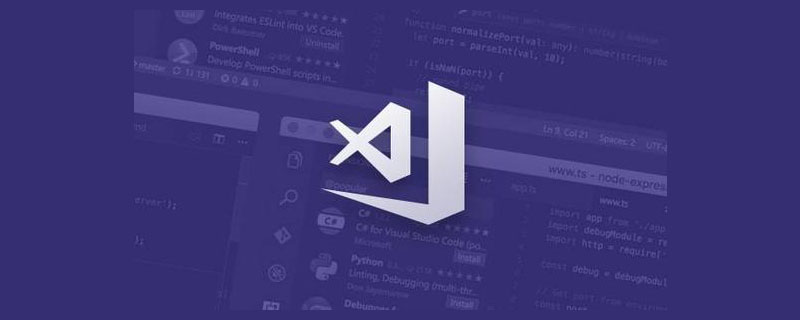 Backend Development
Backend Development PHP Tutorial
PHP Tutorial The use of predictive analysis functions developed by PHP in enterprise resource planning (ERP) systems
The use of predictive analysis functions developed by PHP in enterprise resource planning (ERP) systemsThe use of predictive analysis functions developed by PHP in the enterprise resource planning (ERP) system
The enterprise resource planning (ERP) system is an indispensable tool in enterprise management. It integrates data from various departments and processes to help enterprises achieve efficient use of resources and smooth business operations. However, simply providing data integration and process management is not enough. Enterprises need more in-depth analysis and prediction capabilities to support decision-making and business optimization. As a widely used development language, PHP is an ideal choice for developing predictive analysis functions in ERP systems.
Predictive analysis is an analytical method that predicts the future from historical data and trends. By identifying patterns and trends, predictive analysis can help companies make reasonable decisions, optimize resource allocation and business processes, and improve efficiency. In ERP systems, predictive analysis functions can be applied to many aspects, such as sales forecasting, inventory forecasting, demand planning, etc. Below we will take sales forecasting as an example to introduce how to use PHP to develop predictive analysis functions.
First, we need to obtain historical sales data for analysis. In ERP systems, sales data are usually stored in the form of databases. The following is a simple PHP code example for obtaining sales data from the database:
<?php
// 连接数据库
$conn = mysqli_connect("localhost", "root", "password", "sales");
// 查询销售数据
$query = "SELECT date, amount FROM sales_data";
$result = mysqli_query($conn, $query);
// 处理查询结果
$data = array();
while ($row = mysqli_fetch_assoc($result)) {
$data[$row['date']] = $row['amount'];
}
// 关闭数据库连接
mysqli_close($conn);
// 打印销售数据
print_r($data);
?>In the above code, we use the mysqli extension to connect to the database, query the sales data and store it in an array. Next, we will use this data for predictive analysis.
In PHP, there are many methods for predictive analysis, such as linear regression, time series analysis, etc. Here we choose the ARIMA model for sales forecasting. The ARIMA model is a commonly used time series forecasting model that captures long-term trends, seasonality, and randomness in data.
The following is a simple PHP code example for sales forecasting using an ARIMA model:
<?php require_once 'vendor/autoload.php'; use PhpmlRegressionLeastSquares; // 准备数据 $dates = array_keys($data); $sales = array_values($data); // 训练ARIMA模型 $model = new LeastSquares(); $model->train($sales, $dates); // 预测未来销售 $future_sales = $model->predict(['2022-01-01', '2022-12-31']); // 打印预测结果 print_r($future_sales); ?>
In the above code, we use the LeastSquares class in the Phpml library to implement the training of the ARIMA model and prediction capabilities. First, we train the model with existing sales data. Then, use the trained model to predict future sales. Finally, print the prediction results.
Through the above code examples, we can see that using the ARIMA model for sales forecasting is a relatively simple and effective method in the PHP development environment. Of course, in addition to the ARIMA model, there are many other predictive analysis methods that can be applied to enterprise ERP systems to meet different needs.
In summary, PHP, as a widely used development language, is very suitable for developing predictive analysis functions in enterprise resource planning (ERP) systems. By using PHP and related predictive analysis libraries, we can easily obtain historical data, apply different prediction models, and perform predictive analysis on the company's sales, inventory, etc., thereby helping the company make more informed decisions and optimize business processes.
The above is the detailed content of The use of predictive analysis functions developed by PHP in enterprise resource planning (ERP) systems. For more information, please follow other related articles on the PHP Chinese website!
 微信小程序中PHP开发的翻页特效实现方法Jun 01, 2023 pm 01:51 PM
微信小程序中PHP开发的翻页特效实现方法Jun 01, 2023 pm 01:51 PM在微信小程序中,PHP开发的翻页特效是非常常见的功能。通过这种特效,用户可以轻松地在不同的页面之间进行切换,浏览更多的内容。在本文中,我们将介绍如何使用PHP来实现微信小程序中的翻页特效。我们将会讲解一些基本的PHP知识和技巧,以及一些实际的代码示例。理解基本的PHP语言知识在PHP中,我们经常会用到IF/ELSE语句、循环结构,以及函数等一些基本语言知识。
 微信小程序中PHP开发的常用工具库介绍Jun 01, 2023 pm 07:40 PM
微信小程序中PHP开发的常用工具库介绍Jun 01, 2023 pm 07:40 PM随着微信小程序的普及和发展,越来越多的开发者开始涉足其中。而PHP作为一种后端技术的代表,也在小程序中得到了广泛的运用。在小程序的开发中,PHP常用工具库也是很重要的一个部分。本文将介绍几款比较实用的PHP常用工具库,供大家参考。一、EasyWeChatEasyWeChat是一个开源的微信开发工具库,用于快速开发微信应用。它提供了一些常用的微信接口,如微信公
 如何利用PHP开发商城的满额赠礼功能May 22, 2023 am 10:02 AM
如何利用PHP开发商城的满额赠礼功能May 22, 2023 am 10:02 AM网上购物已经成为人们日常生活中不可或缺的一部分,因此,越来越多的企业开始关注电商领域。开发一款实用、易用的商城网站也成为了企业提高销售额、拓展市场的必要手段之一。在商城网站中,满额赠礼功能是提高用户购买欲望和促进销售增长的重要功能之一。本文将探讨如何利用PHP开发商城的满额赠礼功能。一、满额赠礼功能的实现思路在商城开发中,如何实现满额赠礼功能呢?简单来说就是
 微信小程序中PHP开发的加密和解密实现方法Jun 01, 2023 am 08:12 AM
微信小程序中PHP开发的加密和解密实现方法Jun 01, 2023 am 08:12 AM随着微信小程序在移动应用市场中越来越流行,它的开发也受到越来越多的关注。在小程序中,PHP作为一种常用的后端语言,经常用于处理敏感数据的加密和解密。本文将介绍在微信小程序中如何使用PHP实现加密和解密。一、什么是加密和解密?加密是将敏感数据转换为不可读的形式,以确保数据在传输过程中不被窃取或篡改。解密是将加密数据还原为原始数据。在小程序中,加密和解密通常包括
 PHP开发中提供效率的VSCode插件推荐(值得收藏)Mar 30, 2021 pm 07:31 PM
PHP开发中提供效率的VSCode插件推荐(值得收藏)Mar 30, 2021 pm 07:31 PM本篇文章给大家推荐一些VSCode+PHP开发中实用的插件。有一定的参考价值,有需要的朋友可以参考一下,希望对大家有所帮助。
 微信小程序中PHP开发的滑动验证码实现方式Jun 01, 2023 pm 09:01 PM
微信小程序中PHP开发的滑动验证码实现方式Jun 01, 2023 pm 09:01 PM随着互联网的快速发展,网络安全问题也变得越来越严峻。针对恶意攻击、刷单等安全威胁,很多网站和应用程序都使用了验证码来保护用户信息和系统安全。在微信小程序中,如何实现一个安全可靠的滑动验证码呢?本文将介绍使用PHP开发的滑动验证码实现方式。一、滑动验证码的原理滑动验证码是指在验证用户身份时,通过用户在滑块上滑动完成验证过程。其原理是将一张图片分成两部分,一部分
 微信小程序中PHP开发的文本框自动完成功能实现方法Jun 01, 2023 pm 07:42 PM
微信小程序中PHP开发的文本框自动完成功能实现方法Jun 01, 2023 pm 07:42 PM随着微信小程序的普及,各类开发需求也日渐增多。其中,文本框自动完成功能是小程序中常用的功能之一。虽然微信小程序提供了一些原生的组件,但是有一些特殊需求还是需要进行二次开发。本文将介绍如何使用PHP语言实现微信小程序中文本框自动完成功能。准备工作在开始开发之前,需要准备一些基本的环境和工具。首先,需要安装好PHP环境。其次,需要在微信小程序后台获取到自己的Ap
 微信小程序中PHP开发的自动更新方法Jun 01, 2023 pm 11:40 PM
微信小程序中PHP开发的自动更新方法Jun 01, 2023 pm 11:40 PM近年来,移动互联网的快速发展和移动终端的普及,让微信应用程序成为了人们生活中不可或缺的一部分。而在微信应用程序中,小程序更是以其轻量、快速、便捷的特点受到了广泛的欢迎。但是,对于小程序中的数据更新问题,却成为了一个比较头疼的问题。为了解决这一问题,我们可以使用PHP开发的自动更新方法来实现自动化数据更新。本篇文章就来探讨一下微信小程序中PHP开发的自动更新方


Hot AI Tools

Undresser.AI Undress
AI-powered app for creating realistic nude photos

AI Clothes Remover
Online AI tool for removing clothes from photos.

Undress AI Tool
Undress images for free

Clothoff.io
AI clothes remover

AI Hentai Generator
Generate AI Hentai for free.

Hot Article

Hot Tools

SublimeText3 Mac version
God-level code editing software (SublimeText3)

MantisBT
Mantis is an easy-to-deploy web-based defect tracking tool designed to aid in product defect tracking. It requires PHP, MySQL and a web server. Check out our demo and hosting services.

MinGW - Minimalist GNU for Windows
This project is in the process of being migrated to osdn.net/projects/mingw, you can continue to follow us there. MinGW: A native Windows port of the GNU Compiler Collection (GCC), freely distributable import libraries and header files for building native Windows applications; includes extensions to the MSVC runtime to support C99 functionality. All MinGW software can run on 64-bit Windows platforms.

WebStorm Mac version
Useful JavaScript development tools

Safe Exam Browser
Safe Exam Browser is a secure browser environment for taking online exams securely. This software turns any computer into a secure workstation. It controls access to any utility and prevents students from using unauthorized resources.





